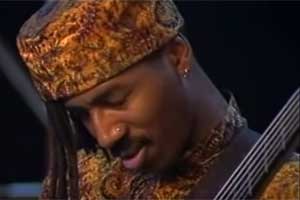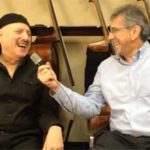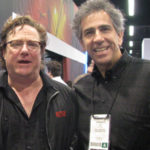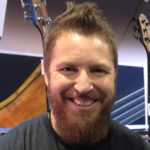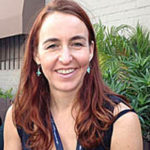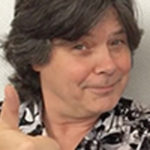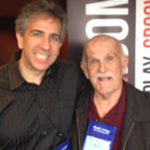Jazz heavyweight talks about the gigs with Art Blakey, Jack DeJohnette and Cassandra Wilson and more
Exclusive interview with FBPO’s Jon Liebman
March 29, 2010
The middle child in a family of musicians, Chicago-born Lonnie Plaxico inherited a gift for music that was discovered and nurtured early. By the age of twelve he had taught himself to play the electric bass, and he was soon venturing into Chicago’s music scene, renowned for its mix of jazz, funk and blues. It was not long before the young musician made his first recording, featuring his family’s band. At the age of fourteen, having already performed alongside several prominent Chicago jazz figures, Lonnie Plaxico turned professional, playing the electric and acoustic bass with equal facility.
In 1980, Lonnie moved to New York, where he soon began performing with Chet Baker, Dexter Gordon and Wynton Marsalis, before becoming the bass player for Art Blakey’s Jazz Messenger’s and, later, Jack DeJohnette’s Special Edtion. Plaxico has also performed and/or recorded with Sonny Stitt, Junior Cook, David Murray, Stanley Turrentine, Joe Sample, Abbey Lincoln, Dizzy Gillespie, Diane Reeves, Ravi Coltrane and many other jazz luminaries and has recorded five critically acclaimed albums as leader. Presently, he is musical director for vocalist Cassandra Wilson in an award-winning collaboration that has spanned over fifteen years.
FBPO:You grew up in a family of musicians. What was your musical upbringing like and how did you end up settling on the bass?
LP: My older brother is a drummer. I saw live music for the first time when I was in grade school. I knew then I was connected to music. When I was 9 years old, I saw my brother performing with a band. I heard all of this music coming from the center of the building where I lived. I saw a lot people dancing and having fun and I wanted to be a part of what I saw. My ears were focused on the sounds that were coming from the bass guitar more than anything else. My father was the manager of my brother’s band, so they left their equipment in my parents’ place. When no one was around, I would sneak in and play the bass guitar!
FBPO: How do you think growing up in Chicago influenced you musically?
LP: There were many musicians and bands in Chicago. I heard music every day and often saw some of the older guys around the city playing guitar outside in the summertime. They would always be playing the blues. There were a lot of bass players where I lived. The bass player from my brother’s band, Derrick Holmes, lived with my family from time to time. I was lucky to have him around because I saw every day what he was doing and this helped me a lot.
There were a lot of bass players in my high school too, including Richard Patterson, who became Miles Davis’ last bass player. Darryl Jones was another bass player from Chicago that I saw from time to time. We all took turns playing in a band called The Combination, depending on which one of us was available. I saw Bill Dickerson as well. There were many older great bass players as well.
FBPO: What made you decide to move to New York? What was that experience like?
LP: I was performing in clubs around Chicago since I was 14 years old. I started playing the bass violin when I was 16. I wanted to play jazz. I started out playing R & B, funk, blues and rock like most musicians did at that time. My first bass violin teacher was a guy name Bill Yancey. I also took some lessons from Steve Rodby, Larry Gray and Paul Zibits. I dreamed about moving to NYC the more I read the back of album covers and heard the music that was coming from musicians that lived in NYC. A friend of mine told me that Wynton Marsalis was looking for a bass player. I sent him a tape of me playing with a piano player name Johnny O’Neal. Wynton asked me to join his band. That’s how I came to NYC and have been living there for over 25 years.
FBPO: What advice would you give to a young bass player who’s contemplating moving to the Big City? What kind of reception can someone expect today, compared to when you made the move?
LP: I advise younger bass players and musicians to go to college in NYC because there are so many musicians they can study with and see performing every night. I think this will make the transition smoother than going to college in another state and then having to move to NYC and start from scratch.
FBPO: Playing in Art Blakey’s band must have been an incredible experience. What was it like?
LP: Playing with Art Blakey’s band was a joy and a learning experience, both musically and personally. We traveled all over, played music and heard stories from Art, as well with all the other musicians in the band. We experienced life together on every level.
FBPO: How about Jack DeJohnette’s Special Edition?
LP: Jack was always looking to push the music forward. He wanted something fresh, less traditional, back with the foundation. Performing with him gave me the chance to try new things everyday.
FBPO: Tell me about your long-running association with Cassandra Wilson.
LP: I met Cassandra at a jam session in NYC and we’ve never stopped performing together since that day. I played on her first CD. Throughout the years, I’ve always been working with her on some kind of project or CD.
FBPO: How would you describe Ancestral Devotion, your latest CD release?
LP: It’s a continuation of my music and writing, my needs and wants, to connect myself to a place I’d never fully understood until recently. I was taught to study the source of music and musicians. I had never fully understood how important it is to approach life that way until recently. I’ve been on a path to learn as much as I can about our ancestors and to apply that knowledge to my life and music.
FBPO: What else would you like to do with your career that you haven’t done yet?
LP: I want learn to connect with people on a conscious level, not just a musical level. As I’m getting older, I see a need for more to happen in the world, regarding humanity and everything else. Musicians are affected by everything that happens in the world and our music is affected by the level of control we have as people. When everything is just about money, artists have to tailor their music according to those standards.
FBPO: What do you like to do when you’re not making music?
LP: My new passion in life is studying ancient history and learning how we got to the place where we are at today and wondering, “Where do we go from here?”
